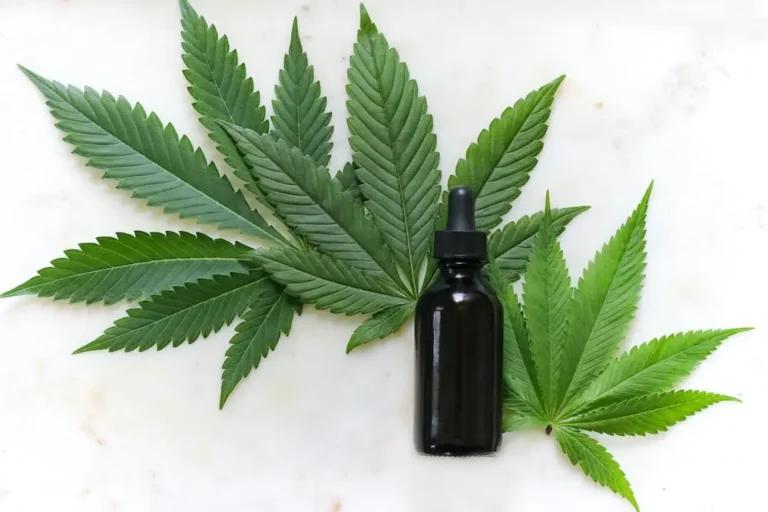
In recent years, there has been a surge in the popularity of cannabidiol oil (CBD oil) as a potential remedy for various medical conditions, and health benefits and used to support a wide range of wellness goals. From chronic pain and epilepsy to insomnia and addiction treatment, CBD has been touted as a natural and safe alternative to traditional medications. However, amidst the hype, questions have been raised about the addictive potential of CBD. In this article, we will delve into the scientific evidence to determine whether CBD is addictive.
Understanding addiction
Before we dive into the specifics of CBD addiction, it’s important to have a clear understanding of addiction itself. Drug addiction is a complex disorder characterized by compulsive drug-seeking behavior and the inability to control drug use despite negative consequences. It is a chronic relapsing condition that affects millions of people worldwide.
The science behind CBD
CBD is one of the many compounds found in the cannabis plant called cannabis sativa. Unlike its counterpart THC (tetrahydrocannabinol), CBD does not have psychoactive effects and does not produce a “high” sensation. Instead, it is believed to interact with the body’s endocannabinoid system, a complex network of receptors and neurotransmitters involved in regulating various physiological processes.
Preclinical studies on CBD and addiction
To determine the addictive potential of CBD, researchers have conducted numerous preclinical human and animal studies. These studies aim to investigate the effects of CBD on addictive behaviors in different phases of addiction, including intoxication, withdrawal, and relapse.
CBD and opioid addiction
Opioid addiction is a significant public health issue, with millions of people worldwide suffering from its devastating effects. Several preclinical studies have explored the potential of CBD in mitigating opioid addiction.
In one study, CBD was found to inhibit the rewarding effects of morphine in rats, suggesting its potential as a therapeutic intervention for opioid addiction. Another study demonstrated that CBD can reduce the withdrawal symptoms associated with morphine dependence. However, more research is needed to fully understand the mechanisms underlying CBD’s effects on opioid addiction.
CBD and psychostimulant addiction
Psychostimulant addiction, including addiction to controlled substances like cocaine and amphetamines, is another major concern in society. While research on the effects of CBD on psychostimulant addiction is limited, some studies have shown promising results.
For example, one study found that CBD did not inhibit the rewarding effects of cocaine in rats. However, another study suggested that CBD may have a synergistic effect when combined with THC in reducing the relapse-like behavior associated with cocaine addiction. Further research is needed to clarify the role of CBD in psychostimulant addiction.
CBD and cannabis addiction
Cannabis addiction is a controversial topic, as some argue that cannabis itself is not addictive while others believe it can lead to dependence. CBD, being a component of cannabis, has been studied for its potential role in cannabis addiction.
Preliminary evidence suggests that CBD may be beneficial in reducing cannabis addiction in humans. One study found that CBD reduced craving and anxiety in individuals with cannabis use disorder. However, more research is needed to confirm these findings and determine the optimal dosage and treatment duration.
Clinical studies on CBD and addiction
While preclinical studies provide valuable insights into the effects of CBD on addictive behaviors, clinical studies involving human participants are essential for translating these findings into real-world applications. Although clinical research on CBD and addiction is still in its early stages, some studies have provided intriguing results.
CBD and tobacco addiction
Tobacco addiction is a global health issue, with millions of people struggling to quit smoking. In a small clinical trial, researchers investigated the effects of CBD on tobacco addiction. The study found that CBD reduced the number of cigarettes smoked by participants, suggesting its potential as a smoking cessation aid. However, larger-scale studies are needed to confirm these findings.
CBD and alcohol addiction
Alcohol addiction is another prevalent issue worldwide, with significant social and health consequences. While research on the effects of CBD on alcohol addiction is limited, some studies have shown promising results. One study found that CBD reduced alcohol craving and anxiety in individuals with alcohol use disorder. However, more research is needed to determine the long-term effects and optimal dosage of CBD for alcohol addiction.
FDA regulations on CBD products
The U.S. Food and Drug Administration (FDA) plays a crucial role in regulating CBD products. The only FDA-approved CBD-based medication is called Epidiolex for the treatment of severe forms of epilepsy. However, the FDA has not approved CBD for other uses, such as mental health conditions, chronic neuropathic pain management or substance use disorders. Researchers need to carry out large-scale, high-quality clinical trials to thoroughly investigate the potential medical applications of CBD.
The agency is actively exploring regulatory pathways for CBD and has issued warning letters to companies making unsubstantiated health claims about their CBD products. The federal government has not yet approved the use of CBD in any dietary supplement or food. Federal law requires that hemp-derived CBD products contain less than 0.3% levels of THC.
The bottom line: Is CBD addictive?
Based on the available scientific evidence, CBD does not appear to have the same addictive potential as substances like opioids or psychostimulants. Preclinical studies suggest that CBD may even have therapeutic properties in mitigating addiction-related behaviors. However, more research is needed to fully understand the mechanisms underlying CBD’s effects on addiction and to determine its optimal use in clinical settings.
It’s important to note that while CBD itself may not be addictive, products containing CBD may vary in quality and composition. It is crucial to choose reputable brands and consult with healthcare professionals before using CBD products, especially if you have a history of substance abuse.
According to the World Health Organization (WHO), CBD exhibits no effects indicative of abuse or dependence in humans. It is generally well-tolerated, with few reported side effects such as dry mouth, diarrhea, reduced appetite, drowsiness and fatigue. Understandably, there’s still a lot we don’t know about the possible negative effects of cannabidiols when it comes to drug interactions and possible cannabis addiction.
In conclusion, the current scientific evidence suggests that CBD is not addictive. However, further research is needed to fully understand the potential risks and benefits of CBD in the context of addiction. As with any supplement or medication, it’s essential to make informed decisions and seek professional guidance when considering CBD as a treatment option.
Sources
- CBD: Does it work? Is it safe? Is it legal? – AAMC
- Cannabidiol as an Intervention for Addictive Behaviors: A Systematic Review of the Evidence – PMC
Medical Disclaimer
NowPatient has taken all reasonable steps to ensure that all material is factually accurate, complete, and current. However, the knowledge and experience of a qualified healthcare professional should always be sought after instead of using the information on this page. Before taking any drug, you should always speak to your doctor or another qualified healthcare provider.
The information provided here about medications is subject to change and is not meant to include all uses, precautions, warnings, directions, drug interactions, allergic reactions, or negative effects. The absence of warnings or other information for a particular medication does not imply that the medication or medication combination is appropriate for all patients or for all possible purposes.








